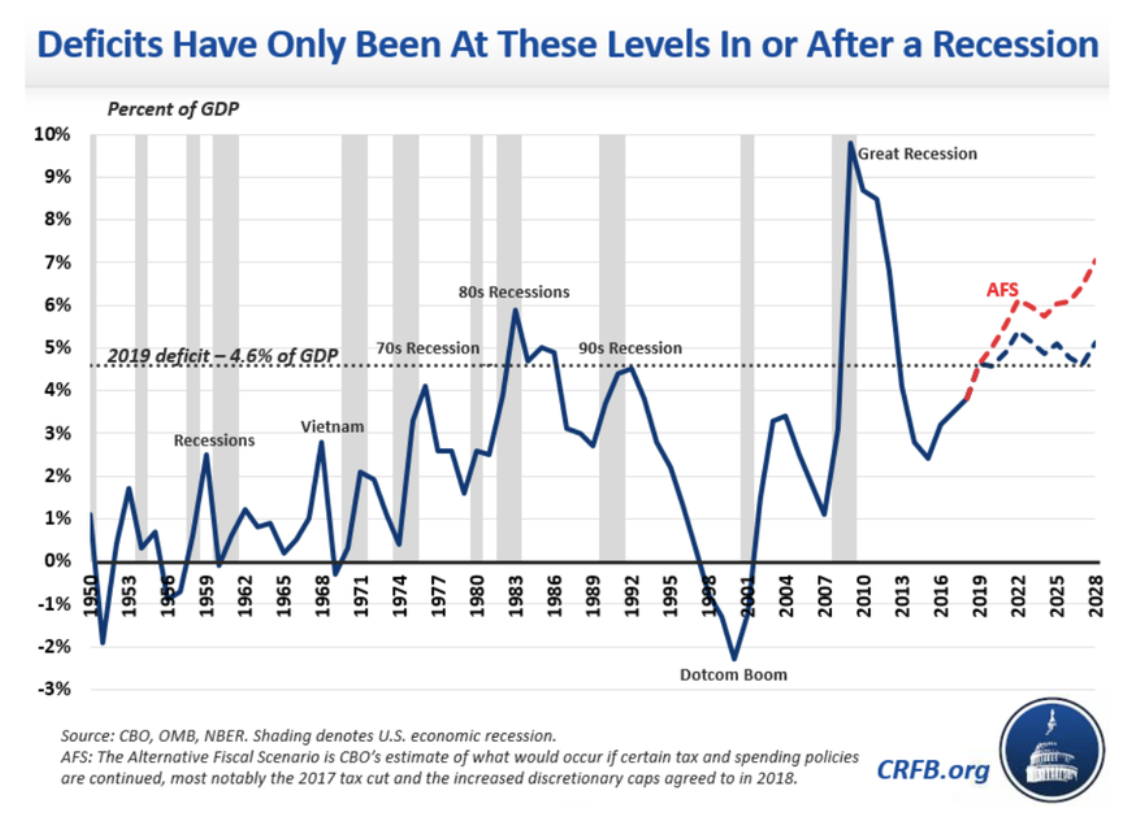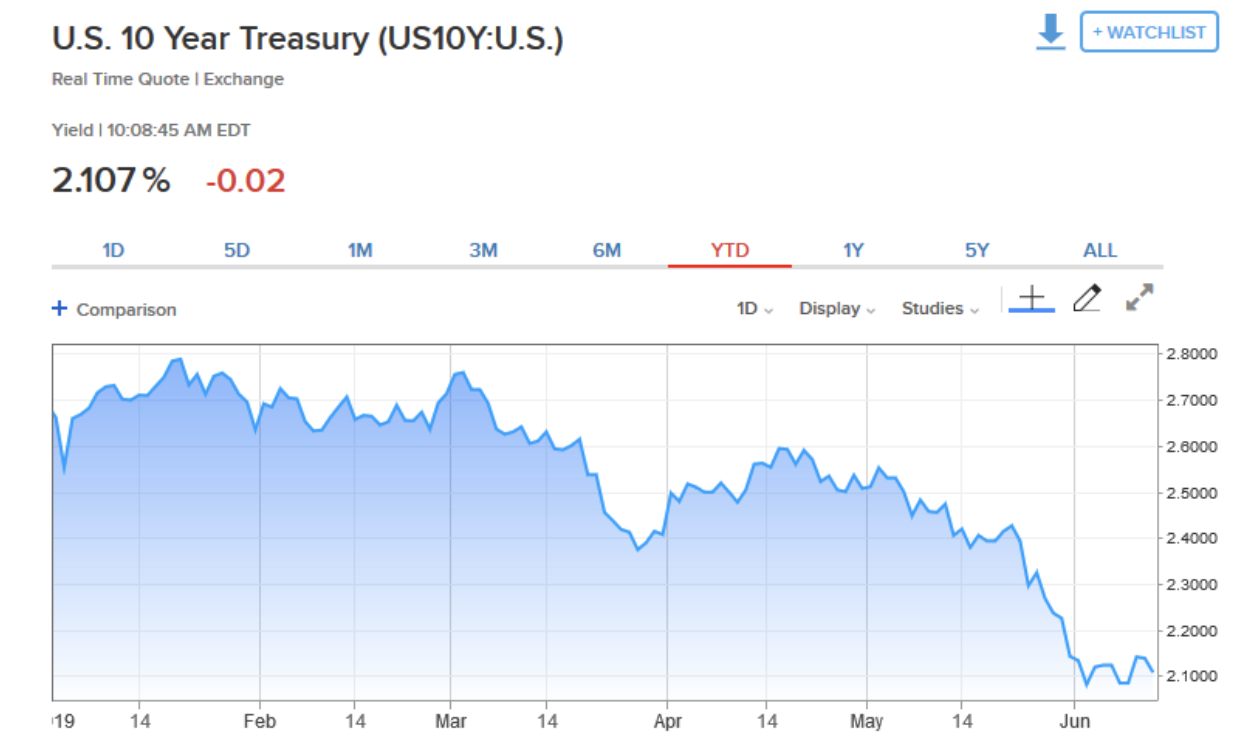The United States is facing an interesting conundrum—an unruly budget deficit that stubbornly refuses to be tamed in an otherwise healthy economy. The Treasury Department says the country’s budget deficit swelled to $738.6 billion during the first eight months of the current fiscal year, and it now appears like a foregone conclusion that it will cross the dreaded trillion-dollar mark in a matter of months.
The figure for last year’s corresponding period clocked in at more modest $532 billion.
Sure, government tax revenue continued to grow, up seven percent over the timeframe thanks to a strong labor market and a boost by President Donald Trump tariffs on imported merchandise. However, that growth has not been nearly enough to offset higher federal outlays with the deficit widening another $206 billion during the month of May alone, good for a massive 41 percent Y/Y increase.
Government spending soars
To be fair, most of the jump can be explained by the fact that June 1 fell on a weekend, thus forcing some federal payments into May. But the deficit story does not paint a pretty picture even after excluding those calendar adjustments since the deficit would still have grown eight percent with spending growth of six percent outpacing revenue expansion of four percent thanks to higher spending on defense, Medicare and Social Security.
At the top-line, a rise in individual and payroll taxes driven by a healthy labor market including higher wages and hours worked contributed to the revenue growth. Custom duties-- mostly tariffs—jumped 62 percent to $5 billion during the month.
On May 10, Washington hiked tariffs on $200 billion worth of China’s imports from 10 percent to 25 percent after the U.S. and China failed to reach a deal after 11 rounds of high-level trade negotiations. Further, Trump has threatened to apply the levy on another $300 billion worth of merchandise from the country if the deadlock remains unresolved.
Yet, spending has been increasing at a much faster clip.
Related: EV Sales Are Set To Soar 540% Medicare spending surged 73 percent, mostly due to the timing shift. Still, it would have grown 18 percent otherwise. Defense spending climbed 23 percent while Social Security payments rose by 11 percent.
The Congressional Budget Office (CBO) now estimates the budget deficit will clock in at $897 billion by the end of the year and could hit the trillion-dollar mark less than 12 months from now if the current trajectory remains unchanged.
Tax cuts to blame
How bad is the current budget situation compared to previous years? Well, pretty bad, and steadily getting worse.
While most people only pay attention to the budget deficit in absolute figures, looking at the deficit as a percentage of a nation’s GDP offers better clarity into the true state of affairs. The bad part is that not only has the metric been ballooning under Trump’s presidency in absolute terms but also as a percentage of GDP.
U.S. federal deficit in FY 2018 was 3.8 percent of GDP but is expected to increase 130 basis points to 5.1 percent in the current financial year making it the largest ever shortfall in a non-recession year. But that’s not all--left unchecked, it’s likely to rapidly approach the all-time high of 9.8 percent of GDP clocked during the last financial crisis.

(Click to enlarge)
Source: Forbes
You can pin the blame partly on Trump’s generous tax cuts as well as a market that keep chucking cheap money at the U.S. government. Treasury yields have dropped precipitously this year, making it even cheaper for the government to continue borrowing.

(Click to enlarge)
Source: CNBC
But by far, Trump’s tax cuts are squarely to blame for the growing conundrum.
The U.S. economy is the largest battleship of them all, making it incredibly difficult for any president to have a meaningful impact during his first few years in office. The one area that he or she can have an immediate impact though is tax laws, which Trump changed shortly after ascending to the Oval Office.
Related: Is This A Turning Point For Gold?
Unfortunately, instead of stimulating the economy, the new tax bill has brought about a fairly sizable reduction in corporate tax receipts. The red line in the first chart shows how much worse the budget deficit will grow if the tax cuts--scheduled to soon expire for individuals, as well as last year’s discretionary spending caps, are extended.
The scary thing is that with the economy already hitting the skids, the budget deficit could climb much faster than depicted here. Meanwhile, tariffs could offer temporary relief but in the final analysis will continue being a hidden tax on both corporations and individuals.
Maybe we can safely continue kicking the can down the road as long as borrowing costs remain at historically low rates.One thing’s for sure though: the U.S. economy is a ticking time bomb and this could end up blowing up pretty badly.
By Tom Kool for Safehaven.com
More Top Reads From Safehaven.com:
















